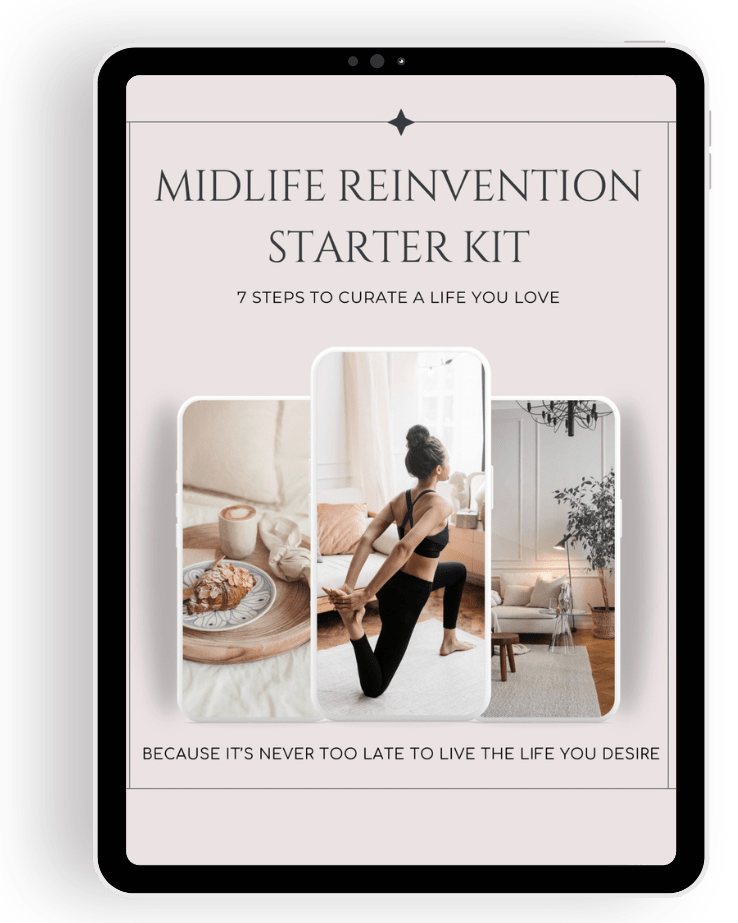It’s time to reimagine Spring Cleaning as more than just tidying up; it’s your annual financial inventory. Decluttering offers a chance to reflect on the items you’ve purchased with your hard-earned money, assessing whether you genuinely need them, or whether they’re just taking up space in your home.
In this post, I share how having less stuff can lead to much more money.

How To Declutter With Intention
Studies have shown that Americans spend nearly £18,000 a year on things they don’t need. By embracing minimalism, you can gain a seamless and effortless lifestyle without all this expensive clutter.’
Set aside time to declutter each room in your house methodically following my tried and tested method:
Clear The Room
First, take everything out of the room. Yes, absolutely everything. The room should end up as empty as the day you moved in.
Thoughtfully Select Which Items To Put Back
The purpose of minimalism is that you intentionally keep and have a purpose for each object, so before putting an item back in the room, evaluate it on its financial and personal worth by asking yourself the following questions:
- How much money did I spend on this object?
- Was it worth it?
- If not, what could my money have gone towards instead?
- Do I want to keep it?
- Will I use it?
- If yes, where’s a specific place it can go?
Give Away Your Unwanted Clutter
Make sure to have lots of boxes or bags ready to organise your unwanted items into piles to sell, donate, or throw away. You could even have a yard sale to get rid of it all if your neighbourhood is suitable.
Minimalism and financial savvy go hand-in-hand because the ethos of minimalism is ensuring that everything you own has value to you and a specific purpose in your life.

Bonus Tip: Don’t Buy To Organise
You may have seen social media posts from minimalist influencers showcasing impeccably decluttered kitchens and cabinets adorned with pristine plastic or glass bins and jars. You don’t need to invest in expensive organisational tools to achieve a tidy space. Most of us already have what we need to organise at home.
Resist the urge to transfer your cereal from its original box to a seemingly “nicer” or “more aesthetic” container. Consider: is that container worth your financial investment? By reframing your perspective on fancy organisational gadgets, you’ll save money and cultivate a sustainable approach to decluttering.

The Freedom Of Having Less
Minimalists reap not just financial rewards but psychological ones as well. Studies have shown that a less cluttered home decreases cortisol (stress hormone) levels. Additionally, those with fewer things spend less time cleaning and organising in the long run.
Your time is money. This is a key aspect of embracing minimalism. If you truly value each item you own, you value yourself and your time more. If you make £20 per hour, ask yourself, when considering a £80 purchase, ‘Is this item worth four hours of my labour?’ This way of thinking is the key to developing intentional spending habits, rather than impulse buying clutter you don’t need.’

6 Ways to Simplify Your Finances
Simplifying your finances can help reduce stress and make it easier to manage your money. Here are some tips to help you simplify your finances:
- Consolidate accounts: If you have multiple bank accounts, credit cards or investment accounts, consider consolidating them. Fewer accounts mean fewer statements to review and fewer passwords to remember.
- Automate bill payments: Set up automatic bill payments for your regular expenses like rent, utilities, and insurance. This will ensure that your bills are always paid on time and you won’t have to worry about missing payments.
- Create a budget: Create a simple budget to help you track your expenses and income. You can use a spreadsheet, an app or a pen and paper. Knowing how much you have to spend each month will help you make better financial decisions. CHECK OUT: Benefits of Budgeting & 10 Practical Budgeting Tips
- Use online tools: Use online tools like Mint, Personal Capital or YNAB to help you manage your finances. These tools can help you track your spending, create a budget and set financial goals.
- Cut back on subscriptions: Cancel any subscriptions that you don’t use or need. This can include gym memberships, streaming services, or magazine subscriptions. You may be surprised how much you can save by cutting back on these monthly expenses.
- Reduce debt: If you have multiple debts, consider consolidating them into one loan with a lower interest rate. This will make it easier to keep track of your payments and reduce the overall amount of interest you pay.
By following these tips, you can simplify your finances and make it easier to manage your money.
MORE ON FINANCES:
- 30-Day Finance Challenge
- How to ensure you are ready to face your finances in 2023
- Are your finances organised?
- Some of my Favourite Money Saving Tips
- Things I Stopped Buying (to Save Money & Stop Waste)

Feel free to sign up to my Friday Morning Love Note HERE! This isn’t just a newsletter - it’s your invitation to pause, reflect, and realign with you. Every week, we’ll journey together to uncover the small, meaningful shifts that will help you design a life that feels uniquely and beautifully yours. Each week, I’ll deliver fresh intentions, uplifting tips, and simple shifts to inspire purposeful, creative living.




